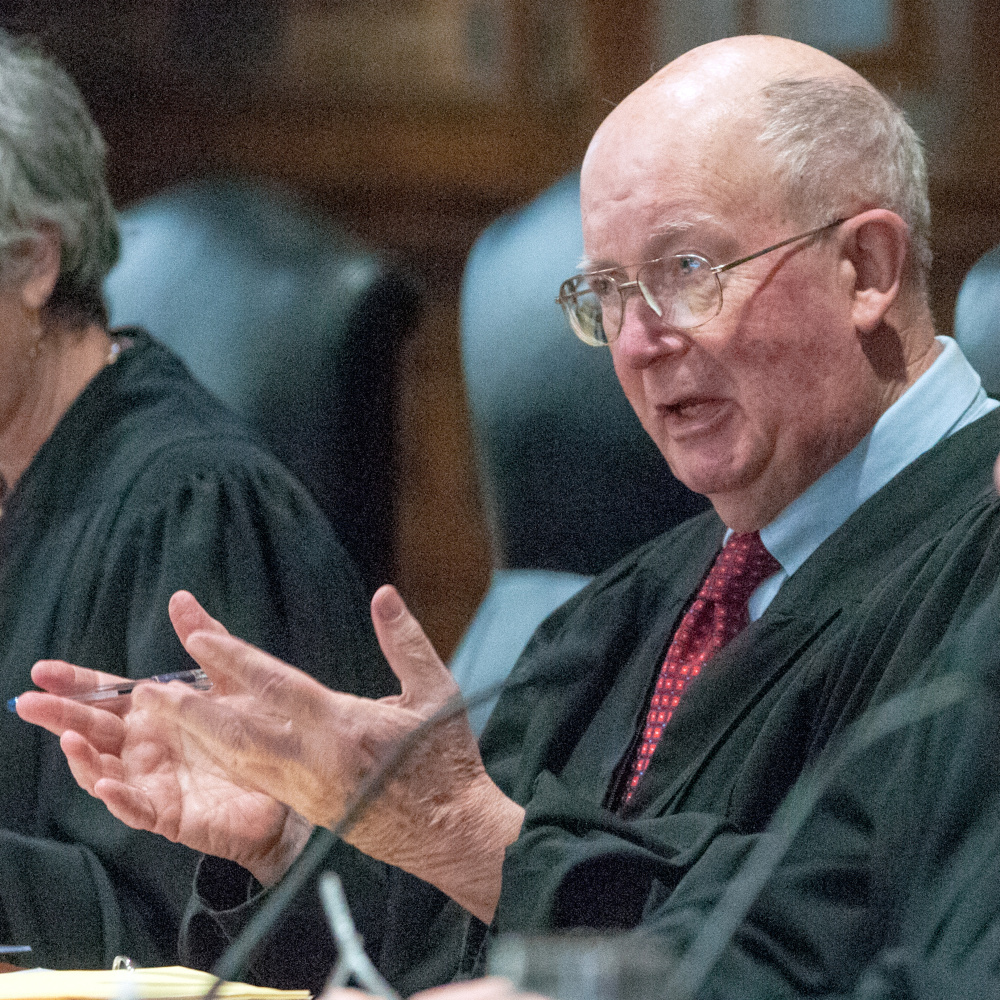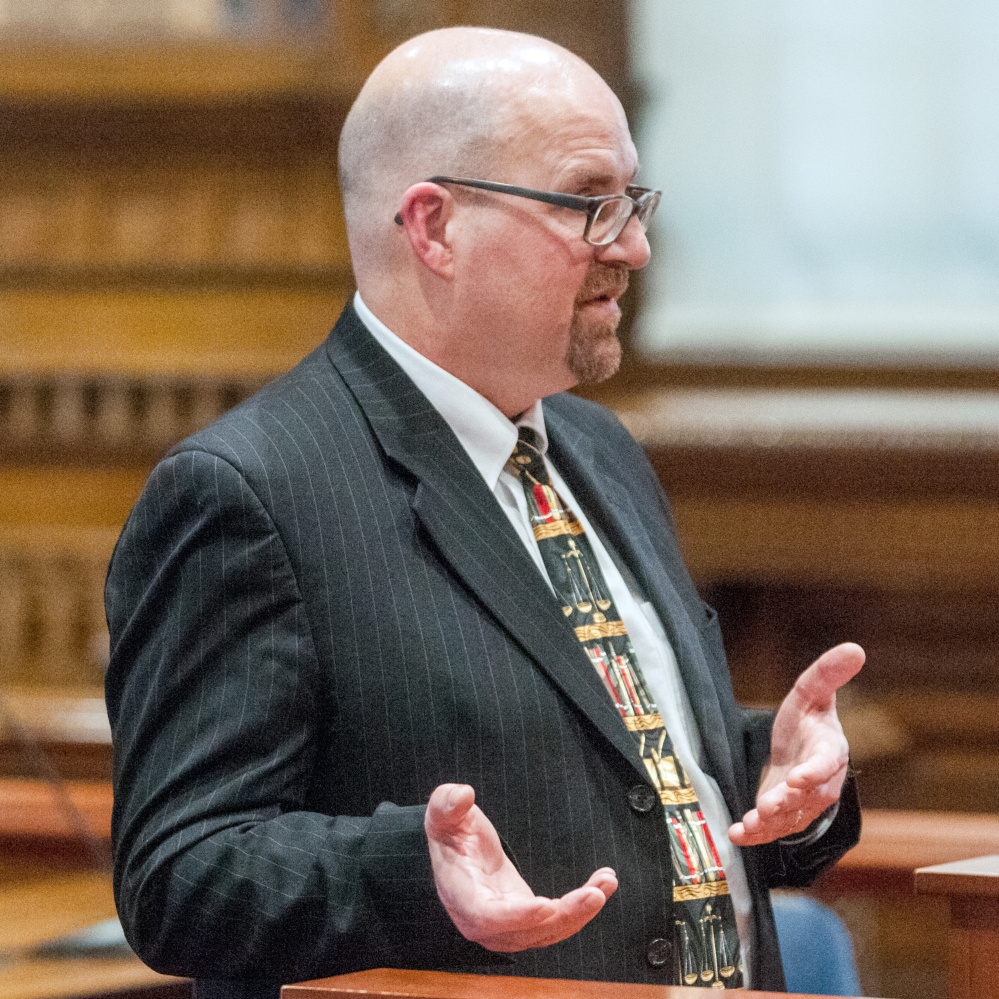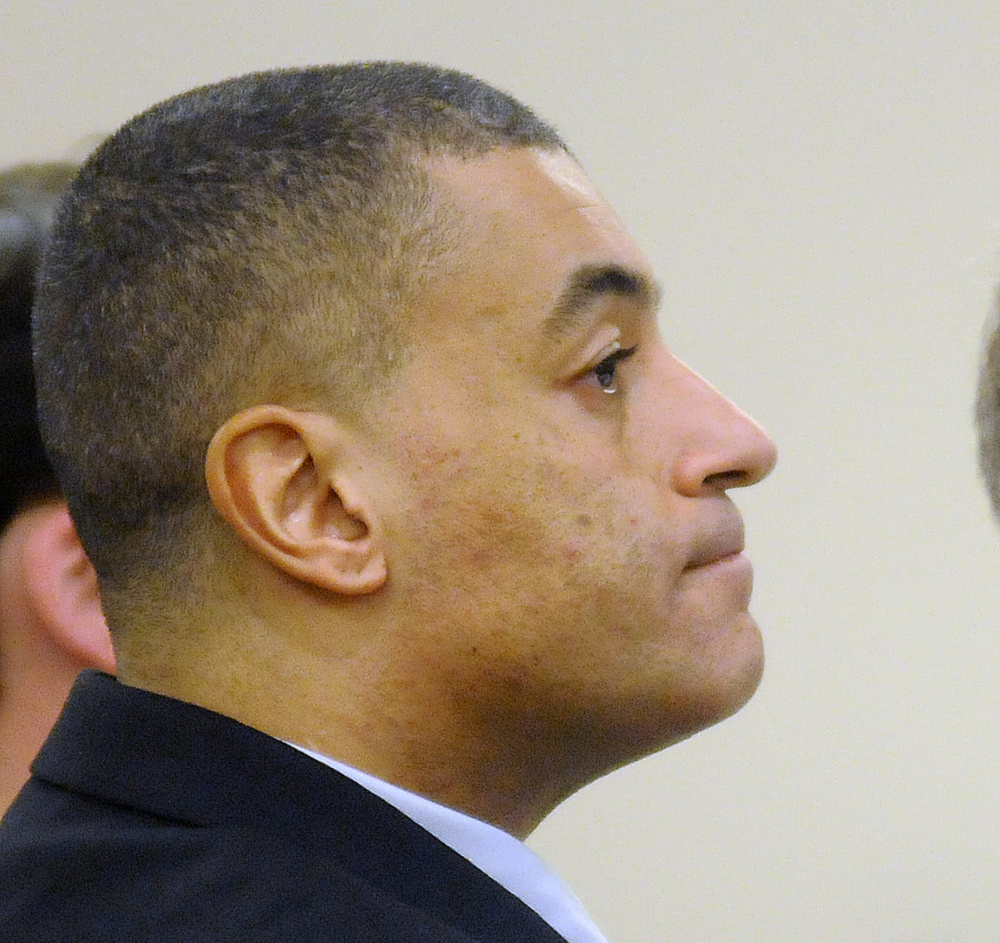AUGUSTA — Relatives and friends of Jillian Jones watched an attorney argue Thursday that Justin Pillsbury, the man convicted a year ago of her murder, deserves a new trial because statements made by the prosecutor “pandered to sympathy, prejudice and bias of the jury.”
The Maine Supreme Judicial Court on Thursday heard oral arguments in that appeal in a one-day session held at the Capital Judicial Center.
“In this case a black man was charged with murdering a white woman, and it’s because of those facts that the court took precautions before trial to reduce the chance that racial bias could influence the verdict in this case,” attorney Caleb Gannon argued on behalf of Pillsbury. “After all, the last census indicates the state of Maine is the least diverse state in the nation, and issues of race impact central Maine the same way they do in other parts of the country.”
He urged the court to take “judicial notice” of recent reports in the Kennebec Journal indicating that KKK fliers have turned up in Augusta and Waterville and Gardiner.
Jones, 24, was died of stab wounds Nov. 13, 2013, in an apartment in Augusta.
Pillsbury, 42, who is serving 50 years in prison for the slaying, was not present for the arguments. Normally incarcerated defendants do not attend.
Jones’ family and friends declined to comment after the hearing.
The court generally issues its opinions in writing, and the decisions usually are announced some months after oral arguments.
Gannon argued that an opening statement by the prosecutor, Assistant Attorney General Donald Macomber, referring to a “green-eyed monster” was improper and encouraged jurors to convict Pillsbury “on something other than the evidence.”
Chief Justice Leigh Saufley told Gannon, “We take any question of racial bias in the presentation of a case very seriously.”
She read aloud Macomber’s remarks as they appear in the trial transcript: “The prosecutor asks. ‘Why did Justin Pillsbury stab Jillian Jones to death? Because he was jealous. Jealousy has been described as a green-eyed monster. Well, ladies and gentlemen, on Nov. 13, 2013, that green-eyed monster was uncaged at apartment six of 32 Crosby St. here in Augusta.'”
Then Saufley asked Gannon what is racist in the statement.
Gannon said it was Macomber describing Pillsbury as a “green-eyed monster.”
Associate Justice Ellen Gorman interrupted Gannon almost immediately, saying, “No, jealousy is a green-eyed monster. In no way did Mr. Macomber refer to your client as a monster. He referred to the Shakespearean (depiction) of jealousy as a monster.”
She asked if Gannon was suggesting it was likely jurors went home and consulted Shakespeare’s “Othello” to read about the Moor, a black man who kills a white woman, his wife. Gannon agreed that was unlikely.
Associate Justice Donald Alexander noted that the trial judge initially raised the concern over the “monster” remark rather than defense counsel and told the prosecutor not to refer to a monster again.
Gorman asked why jurors would notice it if the defense counsel didn’t at the time.
Defense attorneys the next day sought a mistrial because of the remark, but it was denied by Justice Michaela Murphy, who presided at the trial.
Saufley told Gannon, “I’m still having some difficulty in determining how (the opening statement) is a call to the jury to think about the matter in racial terms rather than on the basis of the evidence presented.”
Gannon said even if race is removed, the remark still urges the jury to think of Pillsbury as “a monster that is uncaged and who murdered somebody” and who needs to be locked up.
Gannon said the controlling issue for the Maine Supreme Judicial Court is “the likely effect on the jury of using the term ‘uncaged monster’ when the defendant is a large, African-American man.”
He added, “The trial court stated specifically that it’s certainly appropriate to argue the evidence, but not to dehumanize the defendant. I think if you say a monster was uncaged in the apartment, I don’t know how a jury could take that as anything but descriptive of the defendant.” Macomber defended his opening statement.
“My motivation had nothing whatsoever to do with race,” he told the seven justices of the supreme court. “This was a murder motivated by jealousy.”
He added, “For me to be accused of racism is rather difficult and painful,” He said the allegation “shocks me, disgusts me and angers me.”
He said his only regret is that it has become an appeal issue. “I did my best to fix whatever prejudice there was,” he said.
Saufley said the court’s interest is “whether your words call the jurors to make their decision on the basis of something other than the evidence before them, and that is the allegation of some sort of racial bias.”
Associate Justice Jeffrey Hjelm told Macomber he created a syllogism by saying that the defendant was jealous, that jealousy has been likened to a green-eyed monster and that the green-eyed monster was uncaged. “You created this link a to b to c.” Hjelm said, adding, “The effect of your statement is to see the defendant as a green-eyed monster.”
Jones’ body was found slumped against the bathroom wall in the Crosby Street apartment of Michael St. Pierre. Pillsbury and Jones, who grew up in Bingham and was attending cosmetology school in Waterville, had been staying with St. Pierre so Pillsbury could be closer to his job in Augusta.
At trial, Pillsbury testified he had acted in self-defense. He said Jones picked up a knife and threatened him after he refused to return her phone to her.
Pillsbury told investigators he wanted the code to unlock her phone because he believed she was communicating with another man.
Pillsbury was hospitalized for self-inflicted stab wounds to the neck before he was jailed on the murder charge. St. Pierre, who returned home to find blood all over the apartment, said Pillsbury was trying to kill himself.
The defense previously sought a new trial over the same “green-eyed monster” reference, but Murphy denied it following a hearing in which Macomber said he took the phrase from Shakespeare’s play “Othello.”
Concerns about racial bias among potential jurors preceded juror selection at Pillsbury’s murder trial.
Betty Adams — 621-5631
Twitter: @betadams
Send questions/comments to the editors.







Success. Please wait for the page to reload. If the page does not reload within 5 seconds, please refresh the page.
Enter your email and password to access comments.
Hi, to comment on stories you must . This profile is in addition to your subscription and website login.
Already have a commenting profile? .
Invalid username/password.
Please check your email to confirm and complete your registration.
Only subscribers are eligible to post comments. Please subscribe or login first for digital access. Here’s why.
Use the form below to reset your password. When you've submitted your account email, we will send an email with a reset code.